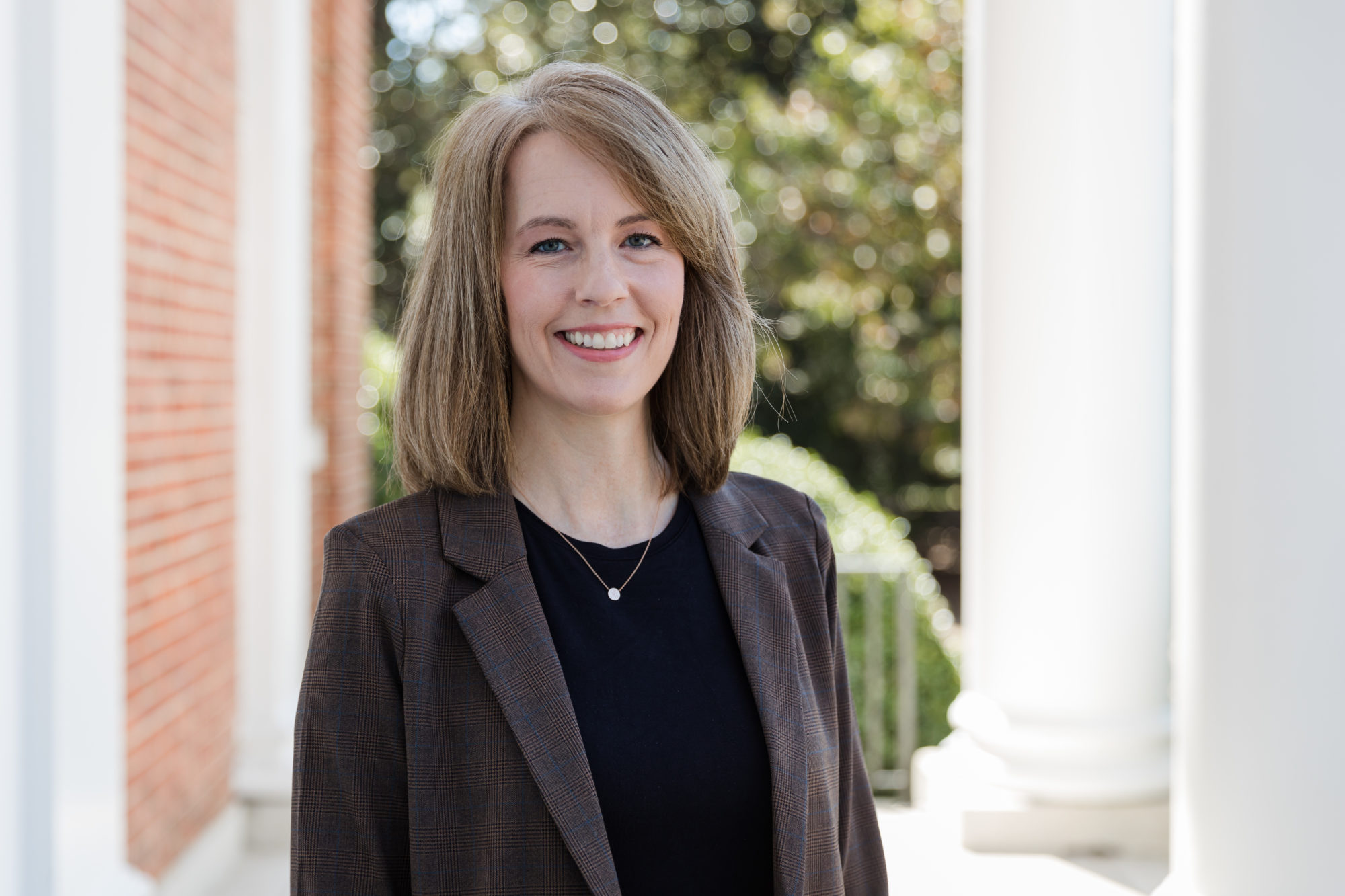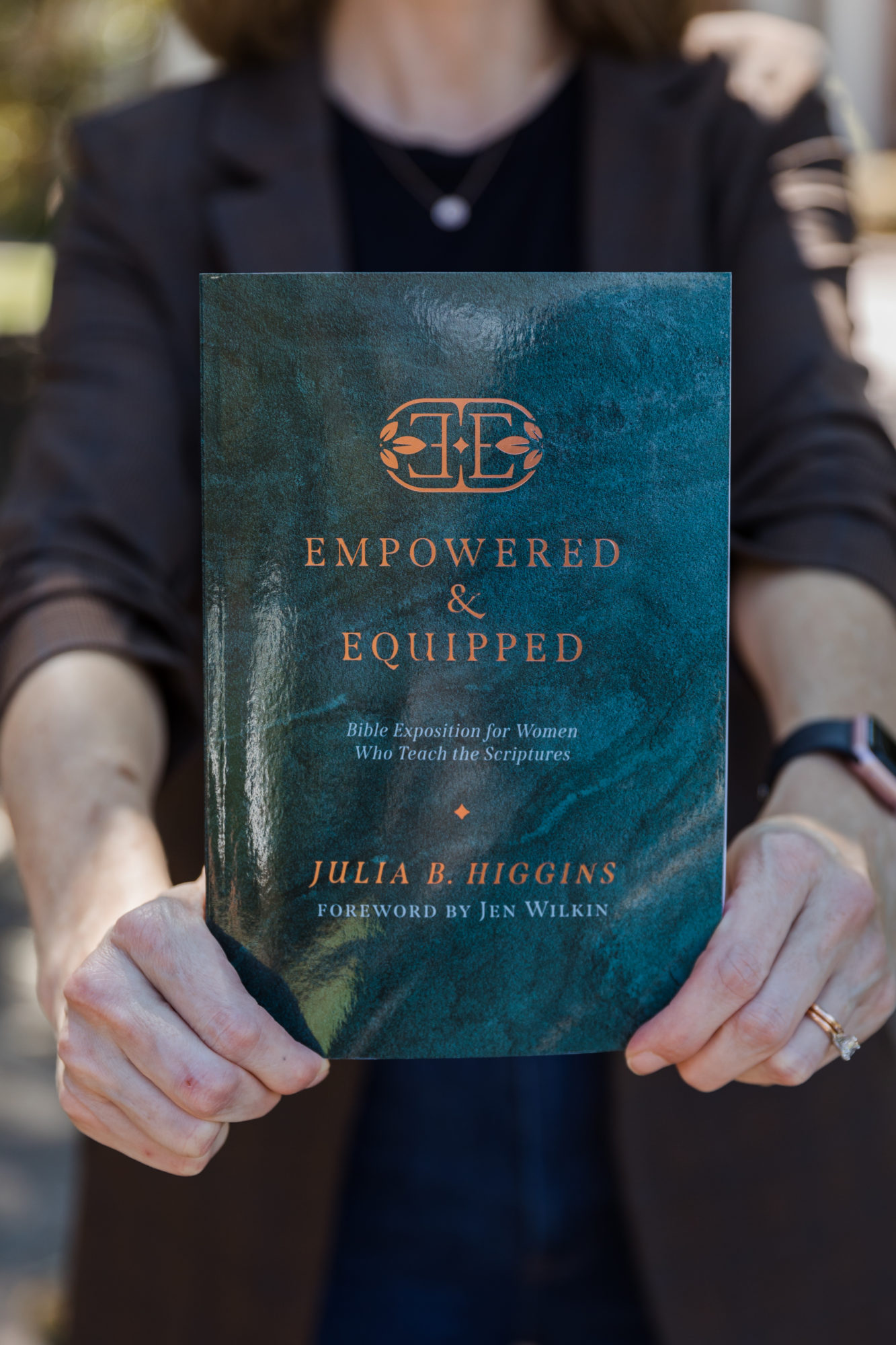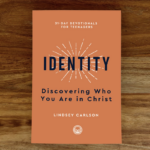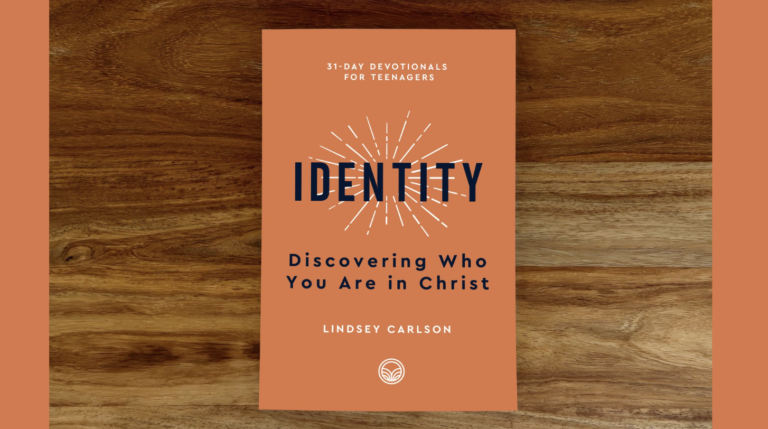I always like to know a little something about an author before I sit down to open up his or her book. Today, I’m excited to interview Julia Higgins about her new book, Empowered and Equipped: Bible Exposition for Women Who Teach the Scriptures. Julia is an assistant professor of Ministry to Women at Southeastern Baptist Theological Seminary and this book is a well-organized, insightful, practical, and beneficial guide for teaching God’s word with accuracy, clarity, and insight. For anyone who wants to be equipped to teach the Bible, I highly recommend this excellent resource.
Empowered and Equipped releases on November 1, and you can pre-order a copy here!

Can you tell us a little bit about yourself?
My name is Julia Higgins and for the last four years, I have served as assistant professor of ministry to women at Southeastern Baptist Theological Seminary (SEBTS). I also wear a few other hats at the seminary, like assisting the provost of our institution as associate dean of Graduate Program Administration, as well as serving on the leadership team for the Society for Women in Scholarship. My position provides many opportunities to serve and teach female students and it is my desire to encourage women to grow in Bible knowledge and theology so they can disciple women in the church well.
I am married to Tony Higgins, who serves as a biblical counselor and executive director of Bridgehaven Counseling and Associates. We are members of The Summit Church in the Raleigh/Durham area, where we serve in various ministries like the prayer team and the kids’ ministry. We absolutely love living in North Carolina—our home is about two hours from the East Coast and its beautiful beaches and about two hours east of the Blue Ridge mountains. It’s a wonderful part of the country to call home, although I do miss my home state Alabama! I am originally from Tuscumbia, a small town that is near the Tennessee River and right next to the more well-known town of Muscle Shoals.
When did you first start writing? What do you enjoy about it?
My official introduction to writing was a summer class I took with a friend when I was about 10 years old. It was a creative writing class that launched me into the world of poetry and stories. Since that time, I have always enjoyed writing, and I have to give a shoutout to all the English teachers I had in school, from about 7th grade onward, who really instilled a passion for both reading and the art of crafting words and sentences to convey deep meaning. During my time in college, I majored in English Literature and minored in history, so the majority of assignments were written ones, and I found that, even at a state school, my bent in writing was towards assessing poetry, plays, or stories in light of the Gospel, the story of God, and what his word says about life. I found joy in making connections and distinctions between the Christian worldview and the worldview presented in literature. Yet, as I grew older and attended seminary, I began to realize that my skills could be put to use for academic writing, and this is a skill I am honing, even now. So, whether is it creative writing or academic, I love the intentionality that is required when writing, and the act of forming thoughts into meaningful phrases that have the ability to touch another person intellectually, emotionally, and spiritually.
The task of teaching the Scriptures brings with it a very serious warning: those who do so will be judged strictly. Therefore, we should determine to understand doctrines of the faith, so that we are equipped to teach well.
Is writing ever difficult for you? How so?
In one sense, writing is difficult but in another it is not. It is not hard for me to put words on a page—I follow a few steps to simply get words on a page when given the opportunity to write an article or presentation. The first step I take as an academic writer is to formulate an outline and if the outline doesn’t come easily, I rely upon mind-mapping to brainstorm ideas, which helps me to produce a logical framework in outline form. This process helps to prevent writer’s block so that a blank page isn’t scary.
The part of writing I do find difficult is related to time management and allowing enough time for editing and rewriting. To get something on the page might be easy, but does it flow well? Does it make sense? Are the sentences in the right order and is the paragraph effective with a topic sentence and supporting sentences? Am I writing in the active voice and have I left time to edit out wordiness? These questions must be answered but if I don’t leave enough time to answer them, I cause unnecessary difficulty for myself.
What led you to write Empowered and Equipped: Bible Exposition for Women Who Teach the Scriptures?
My students. I wrote this book for them and with them in mind. I teach a course at Southeastern entitled Bible Exposition for Ministry to Women. One of the core competencies we want to develop in every study at SEBTS is a high view of the Scriptures and the ability to exposit the Bible well. That’s why every degree at our school requires a Bible exposition course. Students can choose from a general course on Bible exposition taught by various professors, or, if they are called to minister to women in the local church, they may take my class. We want to prepare students for the various ministry contexts they might find themselves in. Offering an exposition course geared specifically for those called to teach in gender specific learning environments serves our students well because they have greater course options related to their callings.
After teaching Bible Exposition for Ministry to Women for a few years at SEBTS, I realized that the entirety of the textbooks I was requiring were written with a particular audience in mind: men who are called to the pastorate. While these books are excellent resources, they don’t speak to other learning environments in the church, such as small groups and gender specific classes. I began to look online and saw a gap in the literature for female Bible teachers and wanted to better equip them with an academic work for their specific ministry context. Thus, the audience of the book extends beyond my students. I desire for the book to equip female Bible teachers in the church who may not have the opportunity to attend seminary.

What’s the central message you hope readers will take away from your book?
The central message of the book is summarized in the title—Empowered and Equipped. The first word speaks to the fact that women, alongside their brothers in Christ, have been given the spiritual gift of teaching for the edification of others in the church. The third word, equipped, follows. If women have been empowered by the Holy Spirit to teach, then we must equip them for the task. I hope that women of the church will find a foundation for teaching the Bible, understanding its nature, storyline, and genres, which will lead to a process of interpreting the Bible accurately, resulting in the practice of teaching it correctly. So often the modern reader goes to the Bible with certain questions in mind—for instance, what does this text mean for me? What does it say about me? Or, how do I obey this text? Instead, we want to train teachers of the Word to first ask, what does the text say? What did mean for the original audience? What does it teach us about our Triune God? After prioritizing those questions, they may then move on to ask questions of application and implementation.
The second section of the book, then, deals with practice. It will push readers to develop messages and curriculum based upon their exegesis of the text. The second section also deals with the life of the teacher (as it relates to spiritual disciplines), doctrinal teaching, and contexts where women teach. The chapter on doctrinal teaching in particular challenged me. Writing that chapter brought greater clarity in understanding Trinitarian theology, which in turn has increased my own practice of teaching the Bible. Before writing it, I heavily emphasized Christ-centered teaching; now, I make sure to consider the way a passage not only points to God the Son, but to God the Father and God the Spirit.
For a sneak peek, here are some quotes:
“Some may conflate the spiritual gift of teaching with the office of pastor/elder and draw a false conclusion that only men are to exercise the gift of teaching. While qualified men are responsible to teach and oversee the local church, that does not negate the fact that both men and women are given the spiritual gift of teaching.”
“The Bible is the most fascinating book that has ever been penned because it unveils a transcendent, powerful, holy, and righteous God. It reveals an infinite God to a finite people. According to his grace and by his divine initiative, he has chosen to reveal himself by imparting the written Word through the Holy Spirit, and he has preserved and used his words to show himself to his people for thousands of years. He employs the Scriptures to call us to salvation, to sanctify us, and to bring joy to our hearts as we traverse various trials of life.”
The church (indicating both men and women) is commanded to go and make disciples, or learners of the doctrines taught by Jesus. If women are to be on mission, fulfilling this calling and command of the Lord Jesus, this assumes they must both be taught and be teachers.
Here are some endorsements:
If you are serious about learning to teach the Bible, this is the book you need. Julia Higgins has written the most comprehensive, systematic, and accessible book I’ve seen on the topic. She steers her readers through each step needed to faithfully interpret, apply, and teach a passage. I will not only use this book as I help others learn to teach, I will return to this book again and again to sharpen my own skills and grow as a teacher of God’s Word.
—Courtney Doctor, author and coordinator of Women’s Initiatives, The Gospel Coalition
This is the book I’ve been hoping someone would write—a solid resource for women who want to be equipped to examine, understand, and exposit the Bible faithfully and soundly.
—Nancy Guthrie, author and Bible teacher
Finally, a serious resource for women who want to grow in their gifting as Bible teachers. This book is both scholarly and readable. It is a trustworthy guide for anyone who wants to learn the tasks of faithful interpretation and formational exposition.
—Leigh Swanson, Executive Vice President, Reformed Theological Seminary Orlando
If you had an afternoon to do whatever you’d like, where would we find you?
If it’s a Saturday in the fall, you’d find me and my husband watching SEC football. We’re a house divided—War Eagle and Go Dawgs!
Julia B. Higgins (PhD, The Southern Baptist Theological Seminary) is assistant professor of Ministry to Women and associate dean of Graduate Program Administration at Southeastern Baptist Theological Seminary in Wake Forest, NC. Julia is co-editor of The Whole Woman: Ministering to Her Heart, Soul, Mind, and Strength and author of Empowered and Equipped: Bible Exposition for Women Who Teach the Scriptures. She is married to Tony, executive director and staff counselor at Bridgehaven Counseling and Associates. They reside in the RDU area and worship at The Summit Church.

















